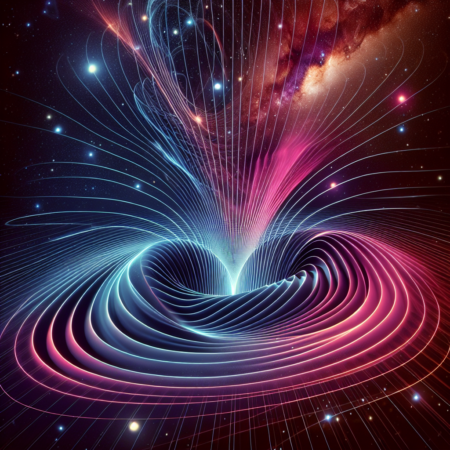What Are Gravitational Waves?
Imagine dropping a stone into a still pond. The ripples that spread outwards are similar to what happens when massive objects in the universe collide or obliterate. In 1916, Albert Einstein predicted the existence of gravitational waves, which are ripples in the fabric of space-time caused by violent cosmic events. For nearly a century, these waves remained theoretical. It wasn’t until 2015 that scientists at the Laser Interferometer Gravitational-Wave Observatory (LIGO) made history by detecting them.
Gravitational waves come from some of the universe’s most powerful occurrences: merging black holes, exploding stars, and supernovae. When two black holes spiral towards each other and finally collide, they send out waves that travel across the universe. Detecting these tiny distortions requires exceptional technology. LIGO uses lasers and mirrors positioned kilometers apart to sense these waves, even though they can stretch and compress space time by a fraction of a proton’s diameter.
Understanding gravitational waves opens a new window into astrophysics. For centuries, astronomers relied on light to observe cosmic events. Now, with gravitational waves, we can study things that happen when light fails to escape, like the death throes of a black hole.
The Implications of Gravitational Waves
Detecting gravitational waves isn’t just a scientific triumph; it also raises profound questions. How does discovering these waves change our perception of reality? The very notion of space and time as separate entities comes into question. Einstein suggested that space and time are interwoven in a four-dimensional fabric, impacting how we understand existence itself. When we analyze gravitational waves, we peer into the heart of the universe. This awareness influences both science and philosophy.
Imagine being able to observe the universe in a way previously thought impossible. The knowledge we gain from gravitational waves can reshape our ethical considerations about humanity’s place in the cosmos. If our actions influence this grand universe, how responsible should we be? This consideration becomes poignant as we face challenges on our planet, like climate change and inequality. Our newfound understanding of interconnectedness shows how vital it is to approach earthly issues with the same diligence we apply to understanding distant galaxies.
While we explore the astrophysical implications, we must also ponder the personal and philosophical aspects of our discoveries. Each detection not only teaches us about cosmic phenomena but also invites introspection. What does it mean to be human in a universe filled with such incredible forces? As we uncover secrets from gravitational waves, we find ourselves facing deeper questions about our existence and purpose.
In this new era of astrophysics, gravitational waves allow us to listen to the cosmos. They enrich our understanding of life, the universe, and everything in between. As we continue to explore these cosmic ripples, we advance not only in scientific knowledge but also in our reflections on what it means to exist in this vast universe. What will the next whisper from the cosmos reveal to us? The future holds more than just answers; it holds the potential to transform our thinking, our ethics, and ultimately, our world.
Discover More Technology Insights
Stay informed on the revolutionary breakthroughs in Quantum Computing research.
Explore past and present digital transformations on the Internet Archive.
OPED_V1

